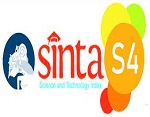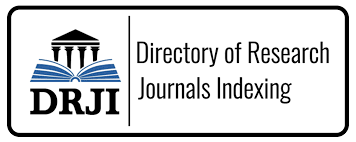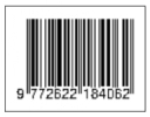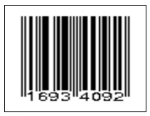Pengaruh Budaya Organisasi dan Pengembangan Karir Terhadap Komitmen Karyawan Pada PT. Sutopo Lestari Jaya Kabupaten Banyuasin
DOI:
https://doi.org/10.31851/jmwe.v22i1.16266Abstract
ABSTRAK
Penelitian ini dilakukan untuk menguji pengaruh Budaya Organisasi dan Pengembangan Karir terhadap Komitmen Karyawan pada PT. Sutopo Lestari . Dalam penelitin ini menggunakan metode kuantitatif. Dengan jumlah populasi yang diteliti yaitu 129 orang karayawan. Adapun metode yang digunakan dalam penelitian ini yaitu berupa metode analisis data yang di antaranya analisis regresi linier berganda, analisis koefisien korelasi, analisis koefisien determinasi, uji t, dan uji F yang semuanya dilakukan dengan menggunakan SPSS 22 for Windows. Hasil pembahasan menunjukkan nilai signifikansi variabel Budaya Organisasi (X1) menunjukan angka 0,000 kurang dari 0,05. Dengan demikian hipotesis nol (Ho) ditolak dan hipotesis alternatif (Ha) diterima yang berarti Budaya Organisasi (X1) berpengaruh signifikan terhadap Komitmen Karyawan (Y). Sedangkan nilai signifikansi variabel Pengembangan Karir (X2) menunjukan angka 0,000 kurang dari 0,05. Dengan demikian hipotesis nol (Ho) ditolak dan hipotesis alternatif (Ha) diterima yang menunjukkan bahwa Pengembangan Karir (X2) mempunyai pengaruh yang signifikan terhadap Komitmen Karyawan (Y) pada karyawan PT. Sutopo Lestari Jaya di Kabupaten Banyuasin.
Kata Kunci: Budaya Organisasi, Pengembangan Karir, Komitmen Karyawan
ABSTRACT
This research was conducted to examine the influence of Organizational Culture and Career Development on Employee Commitment at PT. Sutopo Lestari. This research uses quantitative methods. The population studied was 129 employees. The method used in this research is a data analysis method, including multiple linear regression analysis, correlation coefficient analysis, coefficient of determination, t test, and F test, all of which were carried out using SPSS 22 for Windows. The results of the discussion show that the significance value of the Organizational Culture variable (X1) is 0.000, less than 0.05. Thus the null hypothesis (Ho) is rejected and the alternative hypothesis (Ha) is accepted, which means that Organizational Culture (X1) has a significant effect on Employee Commitment (Y). Meanwhile, the significance value of the Career Development variable (X2) shows 0.000, less than 0.05. Thus the null hypothesis (Ho) is rejected and the alternative hypothesis (Ha) is accepted which shows that Career Development (X2) has a significant influence on Employee Commitment (Y) in PT employees. Sutopo Lestari Jaya in Banyuasin Regency.
Keywords : Organizational Culture, Career Development, Employee Commitment.
References
Afandi, P. (2018). Manajemen Sumber Daya Manusia:Teori, Konsep dan Indikator Riau:Zanafa Publishing
Akbar, A. (2019). Kepuasan Kerja Dan Komitmen Karyawan Dalam Perspektif Manajemen Sumber Daya Manusia:Upaya Untuk Menciptakan Keunggulan Kompetitif Perusahaan. Jakarta:Pustaka Taman Ilmu
Borut, S.A. (2021). Manajemen Sumber Daya Manusia. Depok:PT. Rajagrafindo Persada
Idrus, A. (2022). Komitmen:Kajian Empiris Kesungguhan, Kesepakatan, Iklim Organisasi dan Kepuasan Kerja Dosen. Tasikmalaya:Perkumpulan Rumah Cemerlang Indonesia
Norawati, S., & Fahraini. (2022). Determinan Komitmen Dan Kinerja Karyawan Pada Badan Usaha Milik Daerah (BUMD). Indramayu:CV. Andanu Abimata
Priyatno, D. (2018). Spss Paduan Mudah Olah Data Bagi Mahasiswa Dan Umum. Yogyakarta: Andi Offset
Sinambela, L.P. (2016). Manajemen Sumber Daya Manusia. Jakarta:PT. Bumi Aksara
Sugiyono. (2022). Metode Penelitian Kuantitatif Kualitatif Dan R&D. Bandung: Alfabeta
Sutrisno, E. (2018). Budaya Organisasi. Surabaya: Kencana
Downloads
Published
Issue
Section
License
Copyright (c) 2025 Jurnal Media Wahana Ekonomika

This work is licensed under a Creative Commons Attribution-NonCommercial 4.0 International License.
The copyright of the received article shall be assigned to the publisher of the journal licensed under a Creative Commons Attribution-NonCommercial 4.0 International License in line with the license, authors and any users (readers and other researchers) are allowed to share and adapt the material only for non-commercial purposes. In addition, the material must be given appropriate credit, provided with a link to the license, and indicated if changes were made. If authors remix, transform or build upon the material, authors must distribute their contributions under the same license as the original.






















